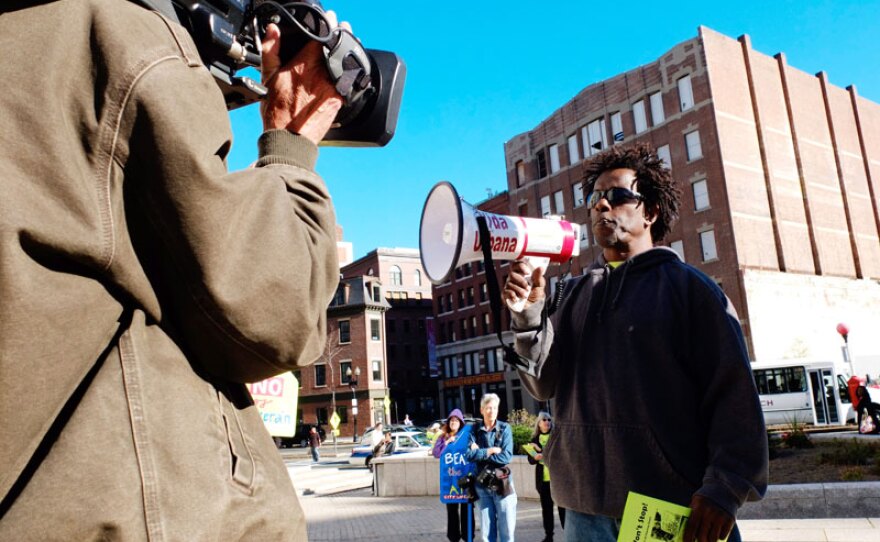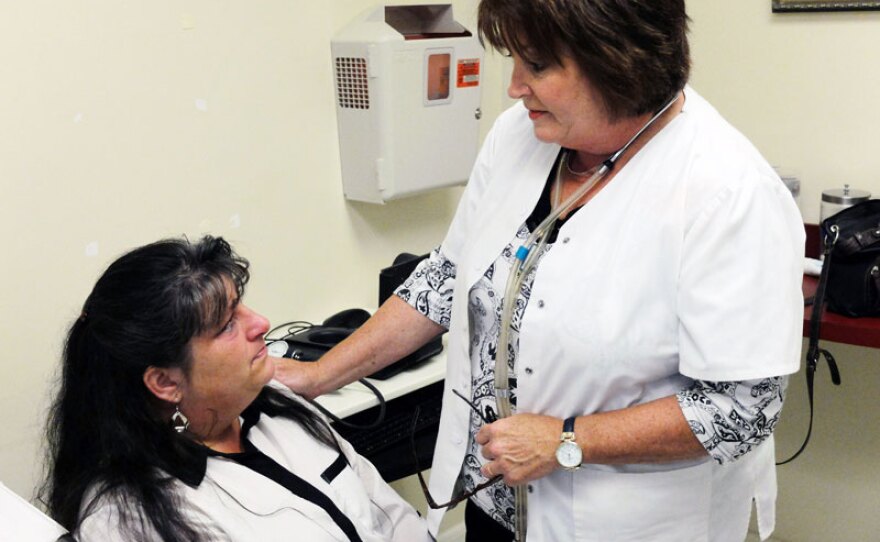This fall, as America prepares to elect a new president, public media takes an unflinching look at the perilous state of the American Dream after decades of rising income inequality and stagnating economic mobility.
In 1831, the French aristocrat, political scientist, and historian Alexis de Tocqueville, set out from France to travel across our young country. His journey took nine months, covered 7,000 miles, and resulted in the publication of “Democracy in America,” which came to define America as a place where anyone, of any background, could climb the ladder of economic opportunity.
Almost 200 years later, political comedian John Fugelsang hits the road in a cobalt blue Ford to retrace the Frenchman’s journey in “Dream On.” Throughout his unusual road trip, Fugelsang asks whether his comedy hero George Carlin was right when he said, “It’s called the American Dream because you have to be asleep to believe it.”
During his search for what seems like the increasingly elusive American Dream, Fugelsang meets a diverse group of hard-working Americans each struggling to achieve their own version of the American Dream:

• Municipal retiree Donald Smith, whose pension was cut after Detroit declared bankruptcy.

• Auto assembly-line worker Sean Crawford, who receives about half the wages of his co-workers due to a two-tier wage system, a concession the UAW was forced to make when the car companies were facing bankruptcy.
• Welder Olivé Hendricks, who was evicted from the house he planned to hand down to his children. While Hendricks was in negotiations to restructure his mortgage, the bank auctioned off his house.

• Threasa and Doyle Sledge, who went from being hungry and homeless to owning their own home. They still face daunting challenges with their youngest daughter, who gave birth to a child at age 15, as well as their son, who received a 24-year sentence for armed robbery.

• Fast-food worker Fior Vasquez, who is fighting for a living wage while trying to support her three children, as well as her 16-year-old daughter’s new baby.

• First-time, non-violent drug offender Nimesh Patel, who is currently serving a 20-year sentence. Nimesh learned about mandatory sentencing laws the hard way when the judge explained that he had no discretion and could not give him a legal sentence under 15 years.
• Undocumented immigrant Keny Murillo, who attends community college and plans to become a doctor. As an undocumented immigrant, Keny discovered that he was unable to qualify for any financial aid, so he decided to become an immigrants’ rights activist.
• Kim Dowdy, who was forced to close the medical clinic she runs in the Mississippi Delta, leaving three thousand uninsured patients without access to primary care.

• Educator Geoffrey Canada, who is trying to reform failing public schools in low-income neighborhoods like Harlem, New York.
• Linda Green, who was laid off from her school cafeteria job after Hurricane Katrina destroyed virtually all the public schools in New Orleans. Linda rebounded by taking an old family recipe and turning it into a successful catering and food-cart business, ultimately winning the Food Network’s Chopped competition.
• Business leader Phil Cooley, who converted an abandoned factory into a low-rent incubator for socially conscious entrepreneurs.
“That old adage that hard work will lead to prosperity isn’t true any longer for millions of Americans,” says Fugelsang in the documentary. “Yet, most of the folks I met on my Tocqueville odyssey still believed in the dream, even when their daily struggles made it feel impossibly out of reach.”

Drawing upon his eclectic background to add a touch of levity and political irony, Fugelsang’s reflections on his Tocqueville journey are captured in a stand-up comedy monologue woven throughout "Dream On." Fugelsang was the host of AMERICA’S FUNNIEST HOME VIDEOS and has appeared on CNN, CNBC, MSNBC, Fox News, HBO, and NPR. Recently, he was the host of Current TV’s daily show, VIEWPOINT, where he facilitated conversations about current affairs. Currently, he hosts a daily political comedy program called “Tell Me Everything” on the SiriusXM Insight Channel.
JOIN THE CONVERSATION:
"Dream On" is on Facebook, and you can follow @dreamon_film on Twitter. John Fugelsang is on Facebook, and you can follow @JohnFugelsang on Twitter.
CREDITS:
“Dream On” was produced and directed by veteran documentary filmmaker Roger Weisberg. Weisberg’s previous 31 PBS documentaries have won over 150 awards including Emmy, duPont-Columbia, and Peabody Awards, as well as two Academy Award nominations. "Dream On" extends this award-winning record by appearing at 19 international film festivals and winning four top awards.
A production of Public Policy Productions, Inc., in association with THIRTEEN Productions LLC for WNET. Producer/Director is Roger Weisberg. Writers are John Fugelsang and Roger Weisberg. Executive-in-Charge for WNET is Stephen Segaller. Post-production Supervisor for WNET is Stephanie Carter.
Watch more video from the film:
Experts on Income Inequality and Social Mobility





